
What is petition for a void marriage is under Hindu Marriage act ?
The article discusses the concept of a petition for a void marriage under the Hindu Marriage Act. It explains that a void marriage is one that is considered null and void ab initio, meaning it is deemed to have never existed. The article then goes on to describe the grounds on which a marriage can be declared void, as specified under Section 5 of the Hindu Marriage Act. The grounds for a marriage to be declared void include the following: if either party was already married at the time of the marriage, if the parties are within prohibited degrees of relationship, if either party is of unsound mind or incapable of giving valid consent, if the consent was obtained by force or fraud, or if the marriage was solemnized in contravention of any of the conditions specified in Section 7 of the Act. The article explains the process of filing a petition for a void marriage, including the requirement for the petitioner to prove the grounds on which they are seeking the declaration of nullity. It also highlights the importance of seeking legal advice and assistance when filing such a petition. Overall, the article serves as a useful guide for those seeking information on the concept of a void marriage under the Hindu Marriage Act and the grounds on which it can be declared null and void.
What is petition for a void marriage is under Hindu Marriage act ?
Under the Hindu Marriage Act, 1955, a petition for a void marriage can be filed under Section 11 and Section 12.
Section 11 deals with the grounds for declaring a marriage as null and void. A marriage is considered null and void if:
- Either party was already married at the time of the marriage
- The parties are within the degrees of prohibited relationship
- Either party is of unsound mind and incapable of giving valid consent to the marriage
- The consent of either party was obtained by force or fraud
- The bride was below the age of 18 and the marriage was solemnized before the bride attained the age of 15 or the groom was below the age of 21 at the time of marriage
On the other hand, Section 12 deals with the grounds for annulling a marriage. A marriage is considered voidable if:
- The marriage has not been consummated due to the incapacity of either party
- Either party was a minor at the time of the marriage and did not give their valid consent
- Either party was of unsound mind and incapable of giving valid consent to the marriage
- The consent of either party was obtained by fraud or force
- Either party was suffering from a venereal disease in a communicable form
- Either party was suffering from a mental disorder and unfit for marriage
- The wife is pregnant by someone other than the husband at the time of marriage.
A petition for a void marriage is a legal document that is filed in court to declare a marriage null and void. In India, the Hindu Marriage Act, 1955 provides for the grounds on which a marriage can be declared void. If any of the grounds mentioned in the Act are present, either party to the marriage can file a petition for a declaration of nullity.
Grounds for a void marriage under the Hindu Marriage Act:
-
Bigamy: If either party is already married at the time of the marriage, the second marriage is void. This is because polygamy is not permitted under Hindu law.
-
Prohibited relationship: If the parties are related to each other in a prohibited degree of consanguinity or affinity, the marriage is void. For example, if the parties are brother and sister or if one of them is the direct ascendant or descendant of the other, the marriage is void.
-
Mental incapacity: If either party is of unsound mind and incapable of understanding the nature of the marriage contract and the duties and responsibilities that come with it, the marriage is void.
-
Consent obtained by fraud or coercion: If either party obtained the consent of the other party by fraud or coercion, the marriage is void. For example, if one party conceals their true identity or lies about their social or economic status, the marriage can be declared void.
-
Impotence: If either party is unable to consummate the marriage due to impotence, the marriage is void. However, the impotence must be present at the time of the marriage and must be incurable.
-
Incurable venereal disease: If either party has an incurable venereal disease, the marriage is void.
-
Unsoundness of mind at the time of marriage: If either party was of unsound mind at the time of the marriage and was incapable of giving valid consent, the marriage is void.
If any of the above grounds are present, either party can file a petition for a declaration of nullity of the marriage. The petition must be filed in the appropriate court and must be accompanied by supporting evidence.
The Hindu Marriage Act, 1955 provides for the jurisdiction of the court in which the petition can be filed. The court can be the district court or a family court, depending on the location of the parties. The petition must be filed within one year of the discovery of the ground for nullity, and not later than three years after the marriage.
In conclusion, a petition for a void marriage is a legal document that is filed in court to declare a marriage null and void. The Hindu Marriage Act, 1955 provides for the grounds on which a marriage can be declared void. If any of the grounds mentioned in the Act are present, either party can file a petition for a declaration of nullity. The petition must be filed within the prescribed time limit and must be accompanied by supporting evidence.
- Petition for void marriage format
- Void marriage declaration template
- Hindu Marriage Act grounds for void marriage format
- Fraudulent marriage voiding template
- Coercion and duress void marriage format
- Misrepresentation in void marriage template
- Legal form for void marriage format
- Voidable marriage legal document template
- Comprehensive void marriage form template
- Customizable void marriage petition form template.
-
More >>
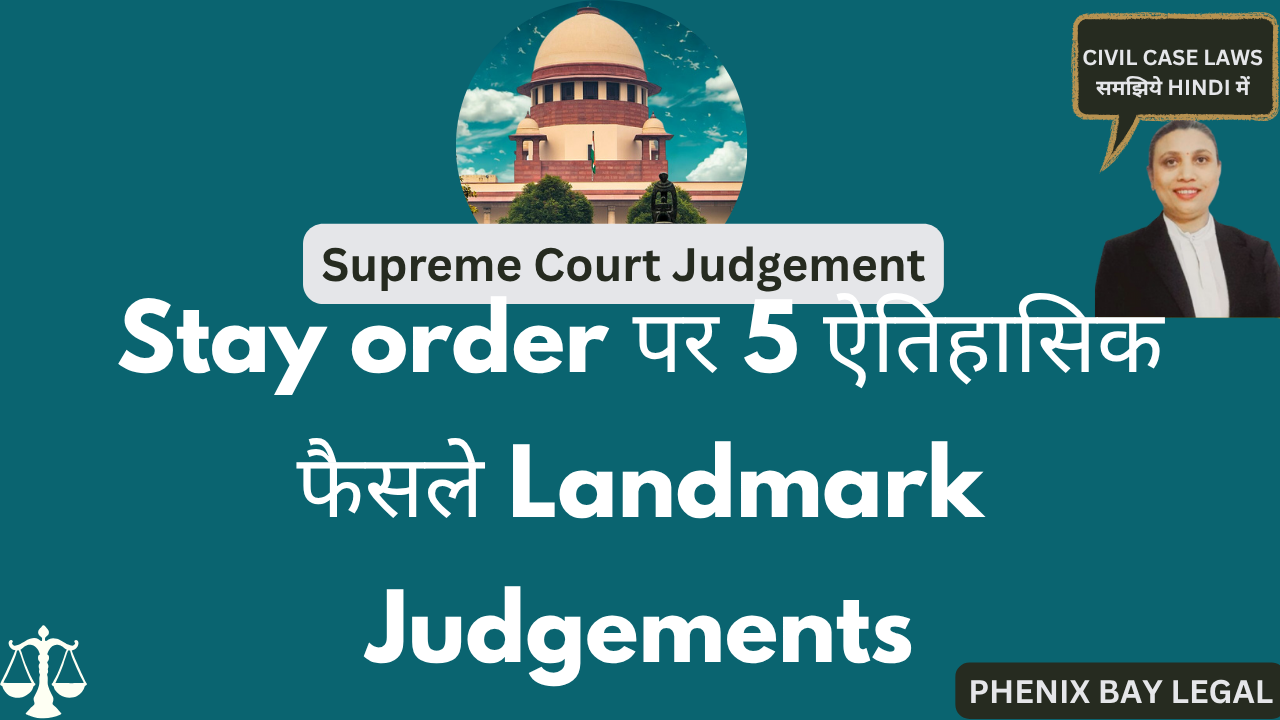
Landmark Judgement on Injunction
In civil, commercial, or even family disputes. But when is a simple injunction suit enough? When do you need to add a declaration of title? And how do courts balance urgency vs evidence in interim relief?
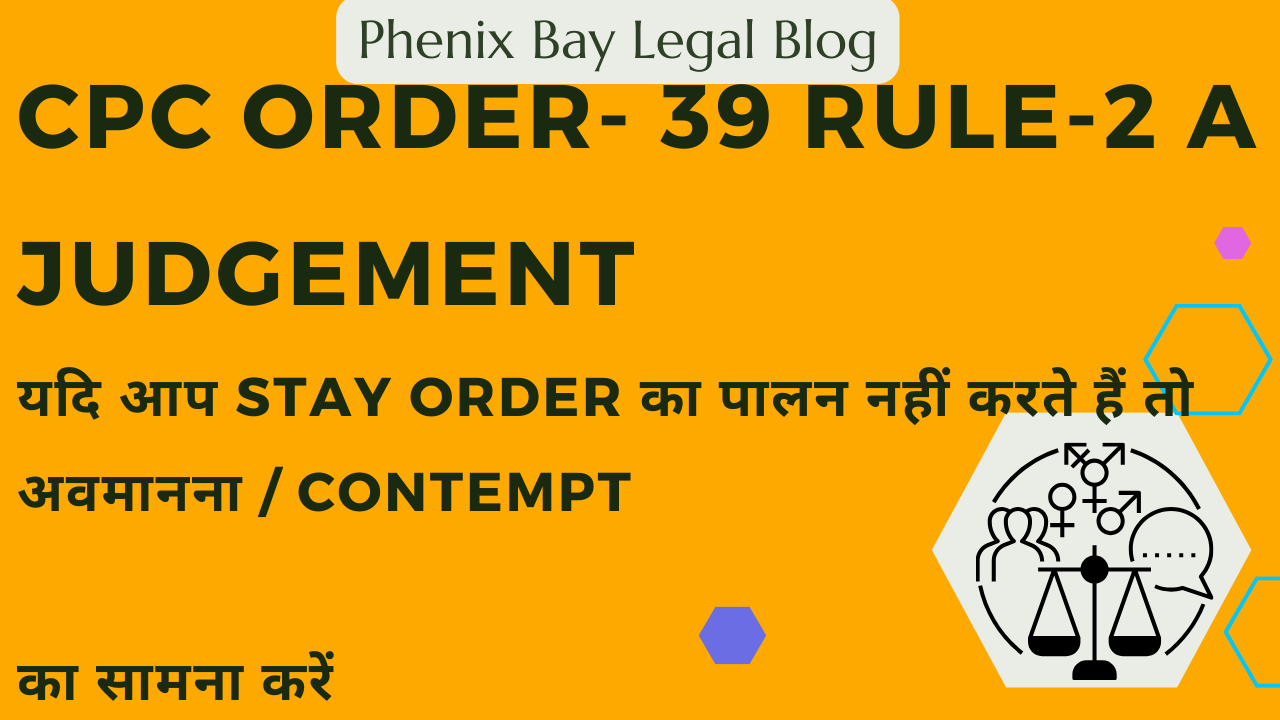
Case Analysis: Stay Order Violation and Contempt of Court by Supreme Court of India
Giving an undertaking to the court is equivalent to an order of injunction—any violation invites contempt proceedings.Injunction orders remain valid until formally vacated by a court—violation before vacation can lead to punishment.
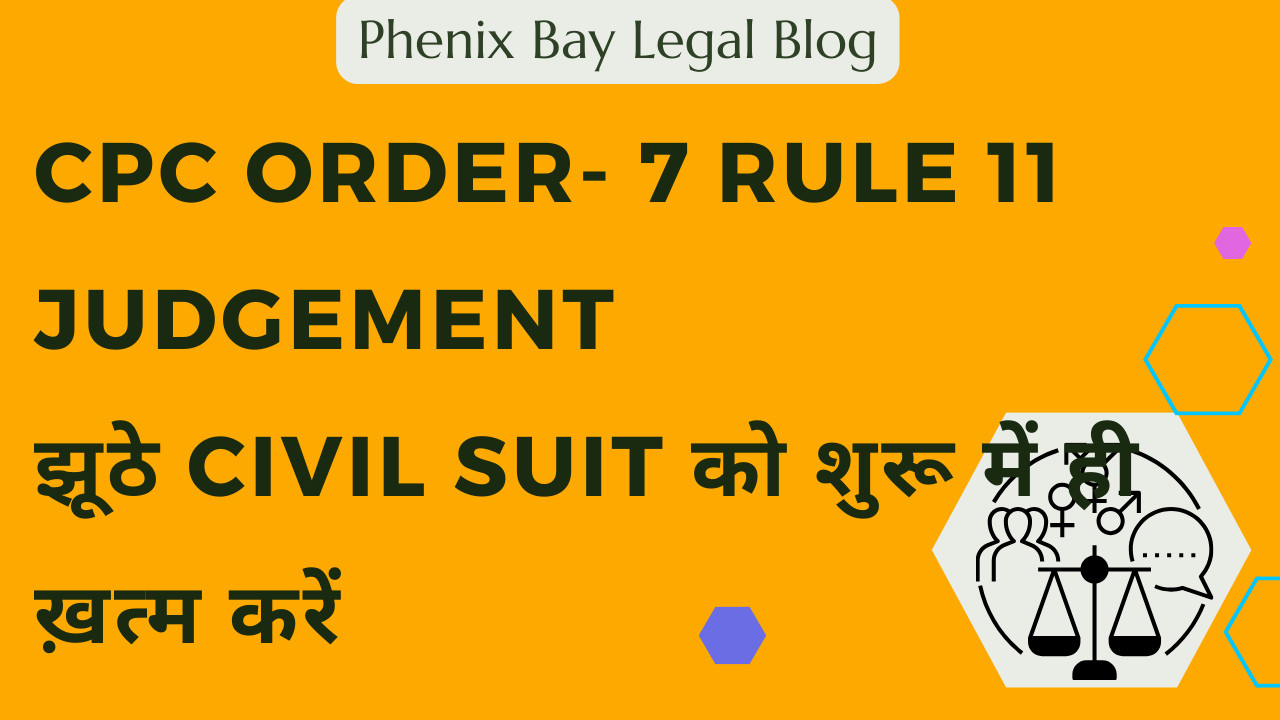
Order 7 Rule 11 of CPC Explanation in Land Mark Judgement
The Sopan Sukhdeo Sable judgment is a landmark ruling that reinforces Order 7 Rule 11 of CPC as a safeguard against frivolous and legally untenable claims. It highlights the importance of examining only the plaint’s contents to decide whether a suit should be dismissed at the threshold.
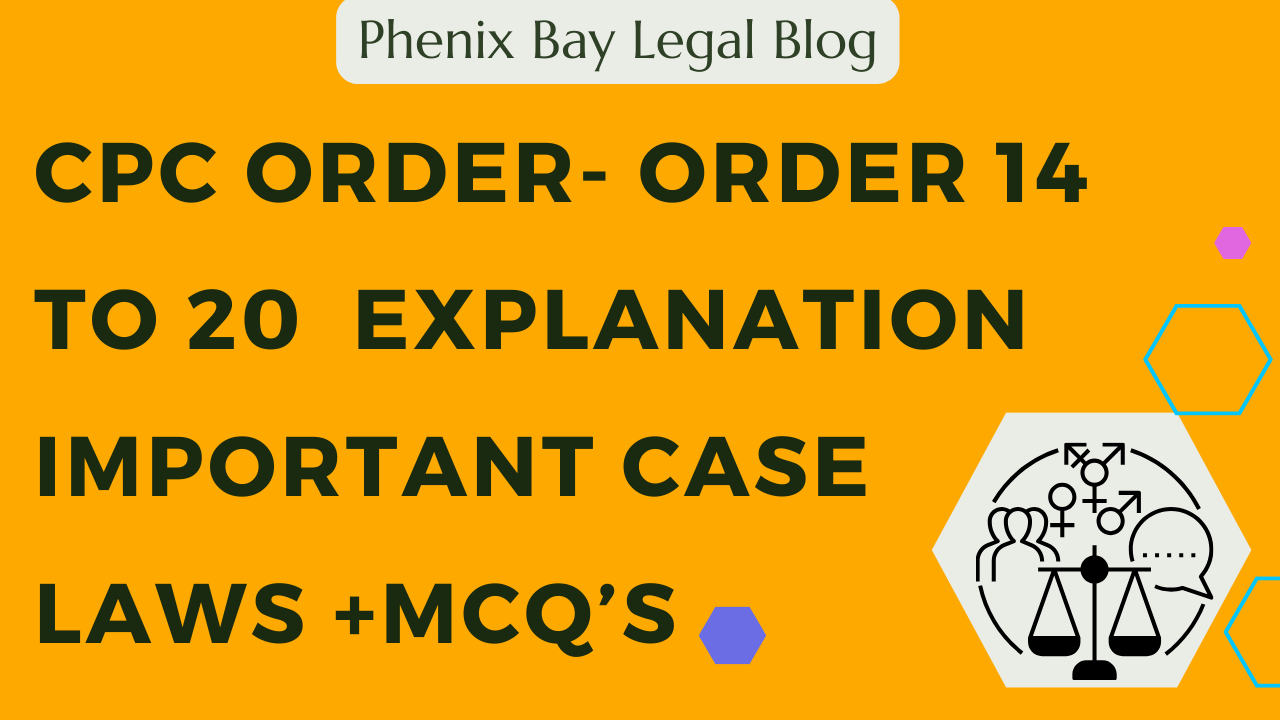
CPC Order- Order 14 to 20 Explanation IMPORTANT CASE LAWS +MCQ’S for Judiciary Exam Preparation
CPC Order- Order 14 to 20 Explanation IMPORTANT CASE LAWS +MCQ’S for Judiciary Exam Preparation
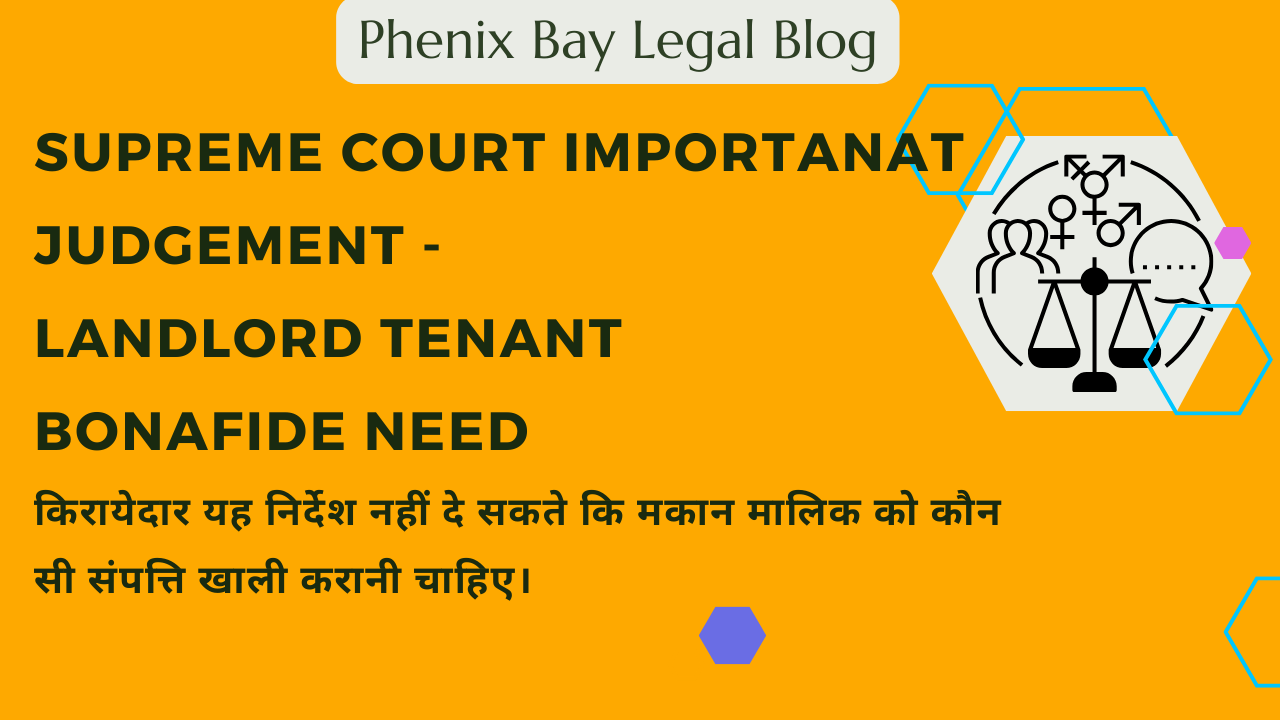
Supreme Court ImportanatJudgement - Landlord Tenant Bonafide need
This case involves a dispute over eviction of a tenant based on the bona fide need of the landlord. The Supreme Court ruled in favor of the landlord, reversing the High Court's decision. Below is a detailed breakdown of the judgment with relevant legal principles, precedents, and reasoning.
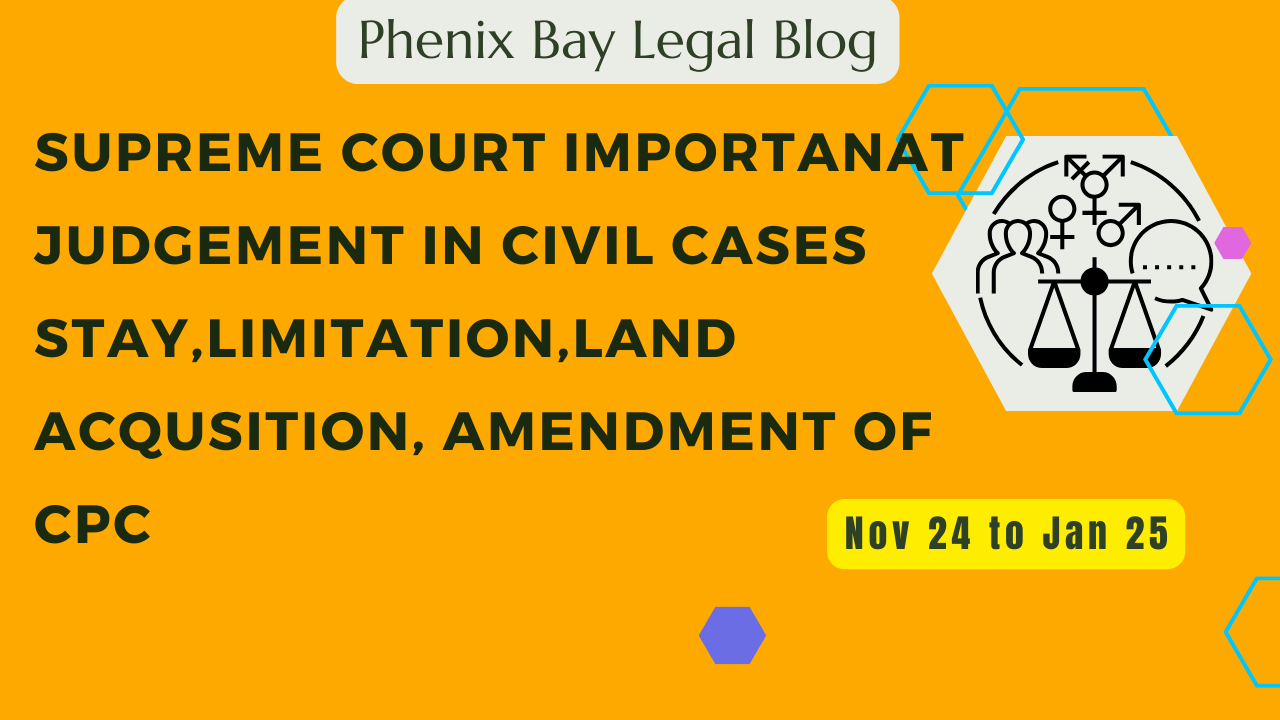
Important Civil Cases Judgement from Supreme Court - November 24 to January 2025
Supreme Court Importanat Judgement in Civil Cases related to Stay,Limitation,Land Acqusition, Amendment of Civil Procedure Code